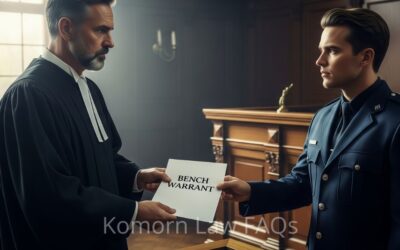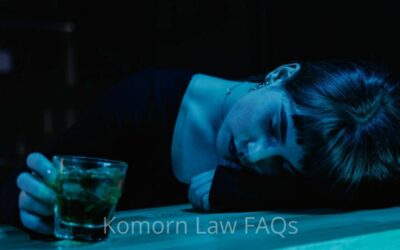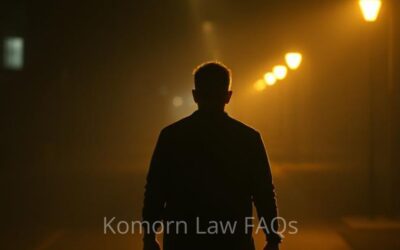A seizure may occur when a police vehicle partially blocks a defendant’s egress if the
totality of the circumstances indicate that a reasonable person would not have felt free to leave
In the case of People v Duff (July 26, 2024)., the Michigan Supreme Court issued an opinion regarding police seizure.
Background of the Case: Police officers observed a parked car with its engine running in an elementary school parking lot at 10:00 p.m. They parked their patrol car about ten feet behind the parked car at a 45-degree angle, with headlights and a spotlight directed at the car.
The officers approached the vehicle, detected signs of intoxication from the driver, and took him into custody following failed field sobriety tests. The driver later agreed to a blood draw and confessed to consuming alcohol.
Key Legal Issues: The defendant’s motion to suppress evidence of intoxication was denied by the Oakland Circuit Court, as it claimed the evidence was obtained through an unlawful seizure. The Court of Appeals also denied interlocutory leave to appeal.
The Michigan Supreme Court remanded the case to the trial court to determine when the defendant was first seized for Fourth Amendment purposes. On remand, the trial court granted the defendant’s motion to dismiss, finding that the defendant was seized when the patrol car parked behind him.
The Court of Appeals overturned the decision, stating that the defendant was not considered to be under seizure when the patrol car pulled up 10 feet away at a 45-degree angle.
Michigan Supreme Court Decision: A police vehicle blocking a defendant’s exit may constitute a seizure if a reasonable person would not feel free to leave based on the circumstances.
The Court determined that the defendant was seized prior to the officers detecting any signs of intoxication, taking into account the police behavior, timing, and environment.
The Court of Appeals’ decision was overturned, leading to a remand to assess if the officer had reasonable suspicion of criminal activity during the defendant’s initial seizure.
Read the opinion here:
Legal Counsel and Your Rights
When facing legal challenges, particularly in criminal cases, it is advisable to seek legal counsel immediately.
An experienced attorney can provide guidance on how to navigate interactions with law enforcement while safeguarding your constitutional rights.
Since 1993 our expert legal defense in navigating criminal law matters and protecting your constitutional rights are what we eat for breakfast everyday.
Contact Komorn Law PLLC if you’re ready to fight and win.
Research us and then call us.
More Rights You Should Know

Michigan Supreme Court Vacates Court of Appeals Ruling of State Anti-Terror Statute
Michigan Supreme Court Vacates Court of Appeals Ruling, Temporarily Preserves State Anti-Terror StatuteIf you are charged with a crime you're part of the State of Michigan family now. Call us - Because you don't want to be a part of that family. Komorn Law (248)...

What could happen when you click the – I agree – box?
Wrongful death suit against Disney serves as a warning to consumers when clicking ‘I agree’A wrongful death lawsuit involving Walt Disney Parks and Resorts highlights the critical importance for consumers to meticulously review the fine print before registering for a...
Other Articles
Client Was Caught With Brass Knuckles – What’s the Law?
Michigan Criminal Laws FAQs Brass KnucklesGetting caught with brass knuckles in Michigan can lead to serious legal trouble. While some states have more lenient laws, Michigan takes a strict stance on these types of weapons. If you or someone you know faces charges...
Resisting an Unlawful Arrest in Michigan
Michigan Criminal Laws FAQs Resisting an Unlawful Arrest in MichiganThe question of whether you can legally resist an unlawful arrest in Michigan is complex, and the answer is generally no, with very limited exceptions. While the idea of defending oneself against an...
Criminal Law FAQs – Assault with Intent to do Great Bodily Harm Less Than Murder (AWIGBH)
Michigan Criminal Laws FAQs Assault with Intent to do Great Bodily Harm Less Than MurderAccording to Michigan State Law (Michigan Compiled Laws - MCL), Assault with Intent to do Great Bodily Harm Less Than Murder (AWIGBH) is a serious felony offense defined in MCL...
Criminal Law FAQs – Operating a Vehicle with a High BAC
Michigan Criminal Laws FAQs Super Drunk (High Breath Alcohol Content)Operating a Vehicle with a High BAC (Super Drunk) - MCL 257.625(1)(c)FAQ 1: What BAC level qualifies as "High BAC" or "Super Drunk" in Michigan? Answer: In Michigan, operating a vehicle with a blood...
Judicial Accountability in Michigan for Judges
Maintaining public trust in the judiciary is paramount to a functioning legal system. In Michigan, several mechanisms exist to ensure judicial accountability, holding judges responsible for their conduct both on and off the bench. These safeguards are primarily...
Criminal Law FAQs – Bench Warrant
Michigan Criminal Laws FAQs Bench WarrantsAccording to Michigan State Law (Michigan Compiled Laws - MCL), a Bench Warrant is a court order that directs law enforcement officers to arrest and bring a specific individual before the court. It's issued by a judge (from...
Criminal Law FAQs – Traffic Offenses
Michigan Criminal Laws FAQs Traffic OffensesAccording to Michigan State Law (Michigan Compiled Laws - MCL), Traffic Offenses encompass a wide range of violations related to the operation of motor vehicles on public roads and highways. These offenses are primarily...
Criminal Law FAQs – Drunk and Disorderly
Michigan Criminal Laws FAQs Drunk and DisorderlyAccording to Michigan State Law (Michigan Compiled Laws - MCL), there isn't a specific statute that solely defines "Public Drunkenness" as a statewide criminal offense in the same way some other states might have a...


















